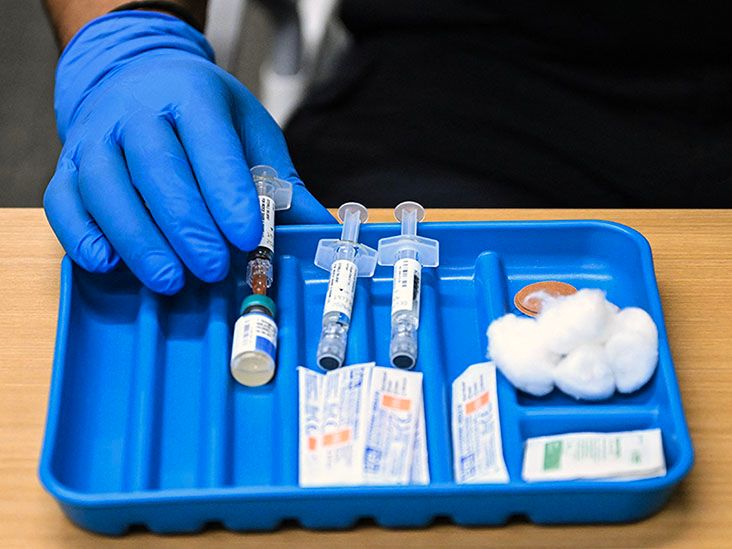Kidney failure is a condition where one or both kidneys cease to function effectively. Some risk factors for kidney failure include high blood pressure, acute kidney injuries, diabetes, and infections.
This condition can be temporary or chronic. Kidney failure represents the most severe stage of kidney disease, and without appropriate medical treatment, it can be life threatening.
Anyone can experience kidney failure. However, some people are at a higher risk than others.

The most common risk factors that lead to the failure of the kidneys include:
Diabetes
Diabetes is a leading cause of kidney failure.
High blood glucose levels can damage the kidneys and reduce their ability to remove waste products from the bloodstream. If the kidneys sustain too much damage, this can lead to kidney failure.
High blood pressure
High blood pressure (hypertension) is another leading cause of kidney disease and kidney failure. This is because the condition increases the force at which the blood flows through the blood vessels in the kidneys, damaging them over time.
Polycystic kidney disease
Polycystic kidney disease causes about 5% of all kidney failure cases and occurs when a person develops multiple cysts in their kidneys. These can damage the kidneys if they become too big.
Acute kidney injuries
Acute kidney injury refers to the sudden inability of the kidneys to filter waste products in the bloodstream. It can occur within hours or days, but most individuals experience it within 48 hours.
Acute kidney injury can lead to the buildup of waste products in the blood and disrupt the balance of fluids and minerals in the body. This can potentially cause permanent damage to the kidneys, which may lead to their failure.
Infections
Certain infections can damage the kidneys and lead to their failure. While chronic infection can damage these organs over time, other infections can lead to the sudden failure of these organs.
Some infections that may cause kidney failure include:
- HIV
- hemolytic uremic syndrome (HUS)
- untreated or long-lasting urinary tract infections (UTIs)
Kidney failure due to certain infections, such as UTIs and HUS, may not be permanent, meaning a person can regain kidney function.
Autoimmune disease
Certain autoimmune diseases, such as lupus nephritis, can cause kidney failure. This occurs when a condition called lupus erythematosus causes the inflammation of the kidneys, damaging them over time.
The kidneys of those with lupus nephritis have difficulties filtering waste products from the blood. This can also lead to a buildup of toxins in the body, which may cause further kidney damage.
End stage renal disease
End stage renal disease refers to the last stage of chronic kidney disease (CKD). In this stage, the kidneys have a filtration rate
Doctors also refer to this stage as renal failure, as the kidneys cannot work on their own due to their insufficient ability to filter the waste products from the blood.
While kidney failure can occur to anyone, certain factors can increase this risk, including:
- Family history: Kidney disease can be hereditary, so certain individuals may have a higher risk of developing it if a close relative has the condition.
- Having obesity: Obesity is a
known risk factorTrusted Source for hypertension, a leading cause of kidney disease and failure. - Smoking: Smoking
can raiseTrusted Source blood pressure, which may eventually contribute to kidney disease. If a person has kidney disease, smoking can worsen the condition. - Age: Being over the age of 60 can increase the risk of developing kidney disease, which may lead to kidney failure over time.
- Race and ethnicity: People who are Latino, African American, Hispanic, Asian American, or Native American may have a higher risk of developing kidney disease and failure.
Disparity in healthcare
Health disparities in the United States disproportionately affect minority groups, particularly in kidney failure (ESRD). Black Americans, who make up 13% of the United States population, represent 35% of kidney failure cases and are four times more likely than white Americans to develop it. Native, Asian, and Hispanic Americans also face significantly higher risks.
This may be due to the combination of social conditions, such as low income, education, housing, limited access to the healthcare system, and food security.
While it is not possible to reverse chronic kidney disease, there are steps that people can take to prevent further damage and preserve kidney function.
- eating a balanced diet
- avoiding foods with high sodium or protein content
- limiting the consumption of fizzy drinks and alcohol
- exercising regularly
- managing diabetes and keeping an appropriate blood sugar level
- managing high blood pressure
- maintaining a moderate body weight
- quitting or avoiding smoking
- monitoring the kidney function and attending regular appointments with a doctor
People with kidney problems need to avoid or limit the consumption of drinks such as:
- alcoholic beverages
- carbonated sodas
- energy drinks
- sugary beverages
When symptoms of kidney failure occur, they may include:
- nausea
- vomiting
- difficulty concentrating
- shortness of breath
- muscle aches or cramps
- loss of appetite
- unintentional weight loss
- itchy or dry skin
- significant changes in urination frequency
- foamy urine
- breath with a urine-like odor
- numbness or swelling in the arms, legs, ankles, or feet
- sleep disturbances
The symptoms of kidney disease are the same regardless of sex. People with kidney disease may not experience any symptoms until the condition has progressed to kidney failure.
Kidney failure can occur due to an acute kidney injury or due to the damage the kidneys have sustained over time due to a chronic illness. The most common causes of kidney failure are diabetes and hypertension, but other conditions can also lead to it.
Leading a healthy lifestyle to reduce the known risks of kidney diseases, such as obesity, diabetes, and smoking, can help preserve kidney function and lower the chances of experiencing kidney failure.


